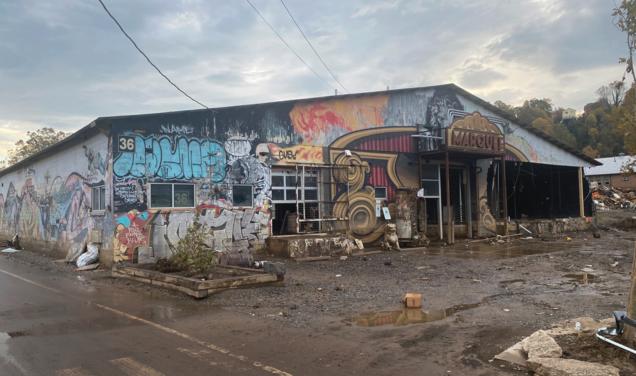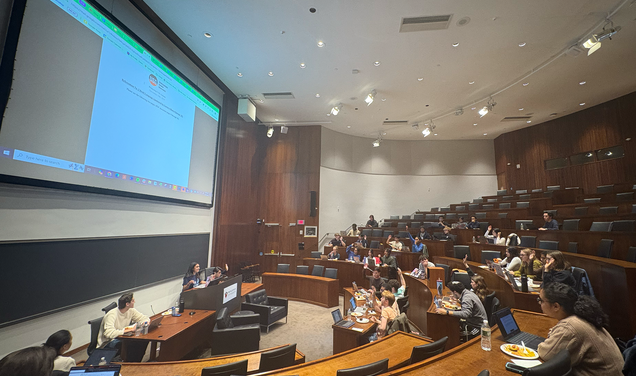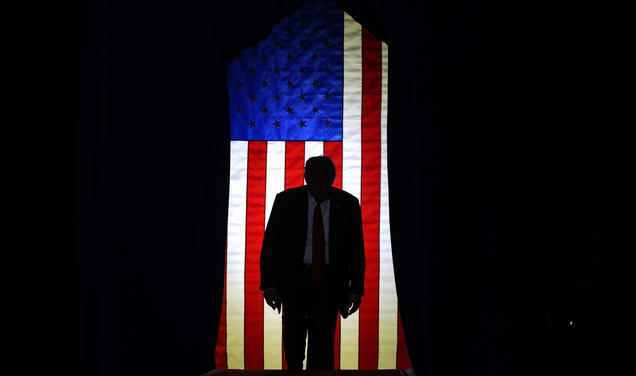Fresh Faces Greet Princeton at Opening Exercises
An expansion of the student body begins with the 1,500 students in the Class of 2026

As Rudy Arzaga ’26 walked the campus on a sunny, beautiful day in early September, the Texas native still couldn’t believe that he was a Princeton student. “It’s a dream come true, honestly. It feels surreal. I’m waiting for my alarm clock to go off … but it’s not!”
The feeling was pervasive in the Class of 2026 — the University’s largest ever class, with 1,500 members representing 76 countries and 48 states, as well as Washington, D.C., the Northern Mariana Islands, and Puerto Rico — during the first few days after its arrival at Princeton.
“There’s so many opportunities here, and I’ve already met so many people from a tremendous amount of backgrounds and countries,” said Gary Smith ’26. “It’s just great to be surrounded by everybody here.”
Rebekah Choi ’26 admitted she was still adjusting. “Maybe it’s because I’m busy, [but] I don’t feel homesick yet,” she said.
Before classes began, the freshmen’s schedules were filled with dozens of events, ranging from a comedy show to academic expos to mindfulness sessions.
Choi was one of 698 freshmen and transfers who took part in Community Action, a service-oriented program coordinated by the Pace Center; Choi’s group planted trees. Meanwhile, 687 first-years took part in Outdoor Action (OA) — the long-running program of camping and other outdoor activities — while others participated in Dialogue and Difference in Action or a fall-sport athlete experience. The programs aim to give new students “an understanding of the value, expectations, and resources of our community,” so that they can “begin to feel a sense of belonging within it,” according to Amanda Zeltner, associate dean for student programs.
Margaret Hayes ’26 formed strong connections on her OA trip, which included hiking and camping at the Watershed Institute in nearby Pennington.
“I was not expecting the difficulty level, but I think the bonding with my group was insane. We all got along super well,” she said, noting that they still met to share meals and hang out after OA concluded.
On Sept. 4, the Class of ’26 gathered back on campus to march in the Pre-rade, to the delight of their families and alumni, enjoy a barbecue meal together, and belt out traditional Princeton songs and pop tunes by Nicki Minaj, the Backstreet Boys, and Harry Styles during the Step Sing, which returned to Blair Arch for the first time in five years.
“It’s just incredible to see the community come together, especially in person,” said Arzaga.
Earlier that day, the class attended Opening Exercises in front of Nassau Hall, featuring remarks by President Eisgruber ’83. Throughout his speech, he alluded to the desire to return to pre-pandemic life and referred to lessons learned during the past two-plus years.
“Our extended experience with ‘social distancing’ and remoteness has highlighted the value of presence and place in our lives. As … all of you in the Class of 2026 begin your undergraduate careers at Princeton, I want to urge you to be fully present in this special and marvelous place, now and throughout your time here,” he said.
While Eisgruber encouraged students to occasionally be spectators so that they can fully enjoy all that Princeton has to offer, including concerts, athletic events, art exhibitions, and the theater, he also prodded the new students to put their phones away to “give yourself a chance to get lost in thought. That is, after all, part of what college is about.”
But Vivi Lu ’26 wasn’t ready to follow that piece of advice, at least when it came to navigating the campus. “I still have to Google Maps my way around, so I don’t quite feel like a student yet,” she admitted. “When I can put my phone away and just know where things are, maybe I will feel like I belong.”
THE CLASS OF 2026 BY THE NUMBERS:
Class size: 1,500
Applicants: 38,019
Admitted: 2,167 (5.7%)
Of those enrolled
Receiving financial aid: 61%
Women: 763 Men: 737 *
Asian American: 25%
Black or African American: 9%
Hispanic or Latino: 8%
Multiracial: 7%
Native American, Hawaiian American or Pacific Islander:
International students: 15%
Children of alumni: 10%
Eligible for Pell Grants: 21%
From public schools: 60%
First-generation college students: 17%
Number of U.S. military veterans: 4
B.S.E. students: 29%
TRANSFERS
Applicants: 1,201
Admitted: 35 (2.9%)
Enrolled: 28
From community colleges: 25
Military (reservists or veterans): 15
First-generation college students: 14
GRAD STUDENTS
Doctoral-degree students: 518
Master’s-degree students: 230
Applicants: 13,607
Admitted: 1,443 (10.6%)
Women: 328 Men: 420 *
International students: 311
U.S. minority students: 202
Humanities and social sciences: 326
Natural sciences and engineering: 422
*According to Princeton’s 2021 Diversity, Equity, and Inclusion Report, data collected in conjunction with the requirements of the U.S. Department of Education requires individuals to self-report as male or female. However, in 2020-21, about 2% of Princeton students self-reported that they identify as transgender, nonbinary, or genderqueer.
Sources: Office of Communications, School of Engineering and Applied Science














1 Response
Norman Ravitch *62
2 Years AgoEntering Students, Both Undergrad and Graduate, This Fall
The data given about the backgrounds of these entering students should place Princeton at the top of awareness of diversity and variety of backgrounds, something all the Ivies need to do more of. While I am not woke, I do appreciate Princeton’s not overly politicized recognition of social change in our country. It is true conservatism to make changes that are slow and almost imperceptible; at least Edmund Burke and I think that.